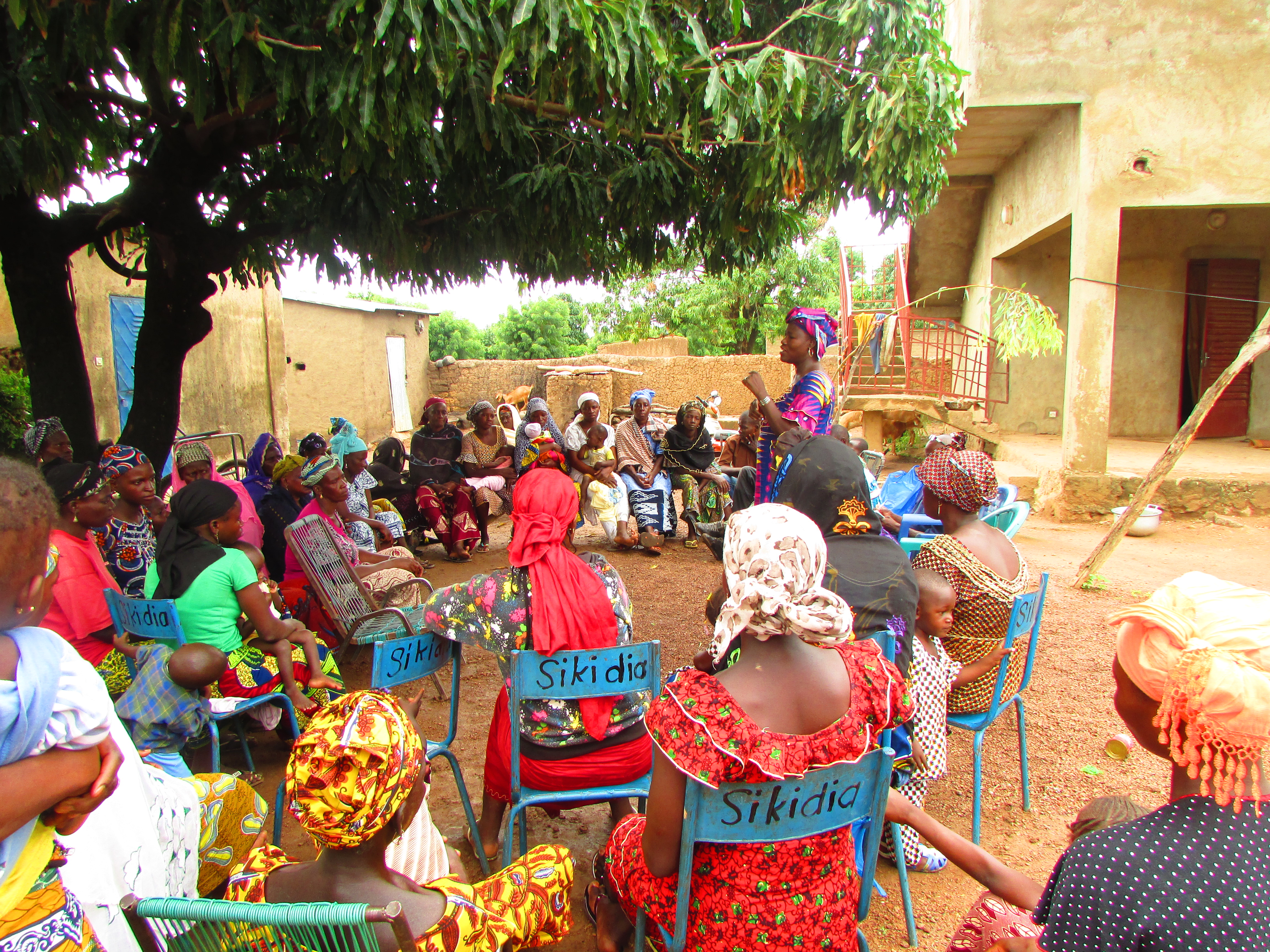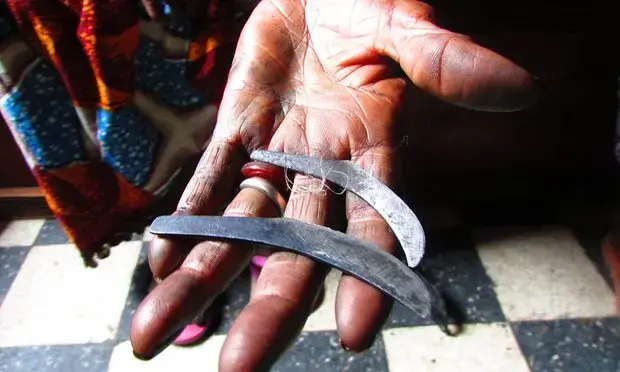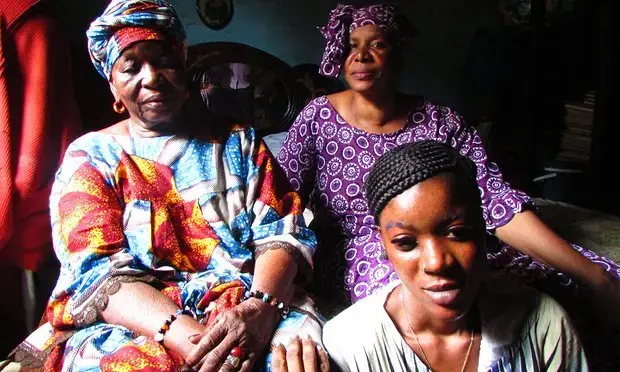Fanta Kanté cannot remember exactly how many girls she has cut in her lifetime. When asked, Fanta and her daughter, M'Badialla, chuckle and say it is impossible to know. At a rate of 16 to 20 cuttings per day, several days a week, for decades, it's understandable that she has not kept track.
Fanta works as a traditional practitioner of FGM in Mali, where an estimated 91% of women between 15 and 49 have undergone the practice.
In Mali, FGM occurs in every religion and across socio-economic classes. The types of mutilation range from slicing and nicking the flesh, to the complete removal and closure of the labia except for small openings for urine and menstrual fluid to escape.
'Against the will of their parents'
Generally, FGM is carried out on girls aged five and younger, often at the urging of older relatives without the knowledge of or against the will of their parents.
Among Malians, religion remains one of the most commonly cited reasons for continuing the practice. Beneath the surface, fear of social isolation and young women's subservience to their elders play a huge role. Assitan Diallo, a longtime activist and FGM researcher, explains the taboo surrounding individualism in Mali, where there is often a price to pay for existing outside cultural norms in a society that relies heavily on familial and social connectivity.
International organisations in Mali have the resources to help end the practice, but they understand that their part in the fight can only go so far. Gemma Locke, a researcher for 28 Too Many, an anti-FGM organisation based in the UK, says that ending the practice must be a Malian-led initiative.
"It has to be Malian to Malian, that has to be within the community, within the family, and beyond… ownership has to be with indigenous people, because if it's not owned, it won't keep. It's not going to be sustainable."
In 2002 the Malian government formed the National Programme for the Fight against FGM. Headed by Josephine Keita Traoré, this programme coordinates all the activities of civil society, NGOs, state actors, and partners involved.
"If we show pictures of the infected parts to parents, they are shocked and decide to react… But we have difficulties with respect to human rights because there's a socio-cultural gravity.
"When we talk about their rights, they think we are acculturated or that it is imported ideas from the west," Traoré says.
Influence on the president
One of the most touted solutions to ending FGM in Mali is enacting a law that criminalises the practice. Yet, there is often a lack of political will, says Fatoumata Siré Diakité, president of the Association for the Progress and Defence of the Rights of Women. She blames Islamist groups who, she claims, have a strong influence on Malian president Ibrahim Boubacar Keïta.
"It is problematic because of these fundamentalist groups… because FGM is a kind of control of human sexuality and they want to have control over women's sexuality," Diakité says.
Getting the major political players to the table to discuss a law against FGM has proven more than difficult. In discussions with judges and imams about gender-based violence, Fatimata Dembélé Djourté, a lawyer and director of the House of the Woman and the Child, explains: "When we were talking about violence against women, people said to be careful not to add FGM in the [law about] gender-based violence because if you do that, your act will have no chance to pass."
Despite widespread support for the practice, recent activism in Mali has begun to turn the tide. Television announcements, billboards, and public proclamations have served to inform people of the dangers of FGM and convince parents to spare their girls.
These shifts, along with her advanced age, have taken a toll on Kanté's ability to practice the tradition in peace. Despite her commitment to the tradition, Fanta wishes to cease cutting. Her apprehension about these changes reveals a more profound fear about the loss of her heritage, a loss she regrets but feels she has little control over.
"If everyone agrees to stop it, even if I have a different opinion, I'll stop it. I regret the situation where there will be the decision to stop. We were born into a society practising [FGM] and we will leave the legacy to our children and grandchildren."








